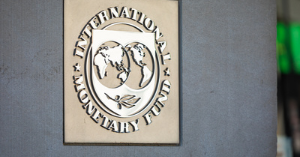WTO Ministerial produces mixed results
-
Despite agreement in several areas, the WTO MC12 conference achieved mixed results, leaving the future significance of the organization still in doubt.
-
Resolution of several long-standing issues, such as the scope of the COVID-19 vaccine waivers and WTO reform, were kicked to future negotiations, spelling ongoing uncertainty for the multilateral trade body.
-
The lack of an effective dispute settlement function and inability to achieve agreement on the parameters of future negotiations in key areas will accelerate the creation of subregional agreements and portend continued proliferation of unilateral measures such as tariffs and sanctions.
The Twelfth Ministerial Conference (MC12) of the World Trade Organization (WTO), delayed twice due to the Covid-19 pandemic, ended June 17th after a week of intense negotiations. While agreement was achieved in several main areas, including on fishing subsidies, e-commerce, food security, and vaccine patent waivers, reviews of the success of MC12 were decidedly mixed. House Ways and Means Committee Chair Richard Neal (D-MA) declared that the outcome “is great progress for global trade policy,” and for the success and health of the WTO while Ways and Means Committee Ranking Member Kevin Brady (R-TX) panned the results, saying they “will undermine U.S. trade interests and cost American jobs.”
What was achieved?
- On fishing subsidies, after 21 years of negotiation, Members agreed to end subsidies to illegal, unreported, and unregulated (IUU) fishing and to the fishing of overfished stocks with a two-year exemption for developing countries within their exclusive economic zones. This agreement represents only the second multilateral agreement to establish any new global trading rules in the 27-year history of the WTO. Still, many agree that the outcome pales in comparison to its original ambition as it only limits, rather than ends, subsidies on IUU fishing.
- The moratorium on e-commerce customs duties was extended until March 31, 2024. Without agreement, it is likely that duties and barriers to trade would have increased, an outcome fundamentally at odds with the WTO’s mission to reduce or eliminate trade barriers. Industry groups also expressed disappointment at the short-term nature of the extension, which sets up another battle over the issue in two years.
- With a global food crisis brewing, Members agreed not to prohibit or restrict food exports purchased by the World Food Program for humanitarian purposes but were unable to agree on a work program for future negotiations in agriculture.
- On COVID vaccine patent waivers, Members agreed that “eligible” countries could override pharmaceutical patents to produce and export COVID-19 vaccines until 2027. Neither industry nor civil society were satisfied with this outcome, and some of the more difficult decisions were papered over (such as whether the wavier applied to China) or deferred for six months (such as whether it extended to therapeutics and diagnostics). In any case, given the current existing global surplus of COVID vaccines, the agreement seems unlikely to spur additional production of vaccines or address the practical problems of getting COVID vaccines in the arms of patients in many low and middle-income countries. The most challenging issues today are distribution of the vaccination, not production.
- Members also agreed to work towards a well-functioning dispute settlement system by 2024, in effect extending negotiations that have been ongoing for several years already without result.
Future of multilateral trade system still in question
Director-General Ngozi Okonjo-Iweala declared that the MC12 outcomes “demonstrate that the WTO is in fact capable of responding to the emergencies of our time.” But while the fact that agreement was reached is historically significant, the current and future relevance of the WTO is still very much in doubt. Most members would agree that the WTO’s three basic core functions; providing a forum to negotiate and establish multilateral trading rules, monitoring trade policies, and resolving disputes among members, are all operating poorly if at all. At the end of the day, WTO reform is still the key to the continued relevancy of the organization.
Many observers, particularly in the United States, still believe that the implementation of the original agreement establishing the WTO has become imbalanced, with the dispute settlement mechanism and, in particular, the appellate body, exercising disproportionate power in resolving ambiguities and defining pre-existing rules. At the same time, many of the WTO core operational elements, designed to created transparency within the international trading system, such as subsidy notification requirements, are simply ignored or adhered to symbolically at best. Observers in the United States and a number of other countries are also concerned that the WTO has been unable to prevent China from flouting or undermining the multilateral system.
Why does it matter?
As to providing a forum to negotiate and establish trade rules, the prospects of achieving significant agreement on some of today’s most pressing global trade problems, such as the need to define rules on state-owned enterprises and industrial subsidies, the ability of some members states to continue to claim developing country status entitling them to special and differential treatment regarding the most stringent WTO commitments, and appellate body reform, seem bleak at best.
For business this means the ever-increasing morass of international rules and regulations will continue and likely accelerate as like-minded countries form trading blocs outside of the WTO with their own set of rules and obligations. And, with a no functioning dispute settlement function, the proliferation of unilateral measures such as tariffs and sanctions, is likely to proliferate.
Authored by: Everett Eissenstat

